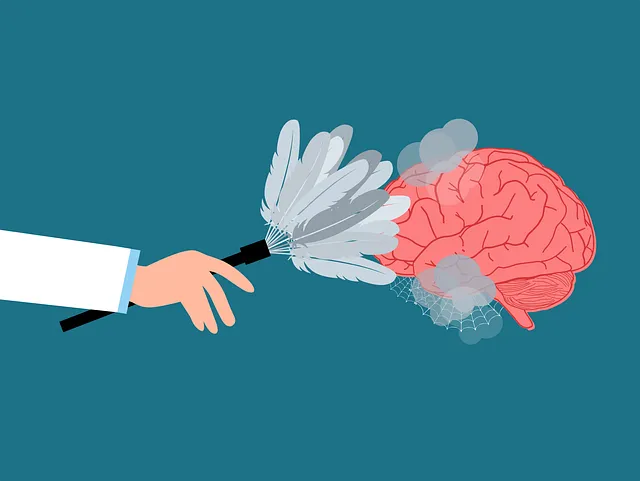Substance abuse poses severe risks to physical and mental health, with early intervention and comprehensive treatment crucial for recovery. The Lafayette Kaiser Permanente mental health center offers a holistic approach focusing on emotional regulation, self-care, and mindfulness meditation to prevent triggers. Risk assessment tailored to individual histories and environments is key, leading to effective coping strategies and improved mental wellness. Evidence-based programs at the center, including CBT and stress management, enhance self-esteem and promote long-term recovery. Community support through groups and resources further aids in maintaining abstinence, as evidenced by positive Lafayette Kaiser Permanente mental health center reviews.
Substance abuse poses significant risks, impacting not just individuals but entire communities. Understanding these risks is the first step towards prevention. This article explores comprehensive strategies for risk reduction, highlighting the crucial role of mental health centers like Lafayette Kaiser Permanente. We delve into evidence-based approaches, community support, and resources that foster long-term abstinence. By examining real-world examples, such as the Lafayette Kaiser Permanente Mental Health Center, this guide offers valuable insights into effective risk mitigation practices, backed by compelling reviews.
- Understanding Substance Abuse Risks and Their Impact
- Lafayette Kaiser Permanente Mental Health Center: A Safe Haven for Recovery
- Comprehensive Risk Assessment: The First Step Towards Prevention
- Evidence-Based Strategies for Effective Risk Mitigation
- Community Support and Resources for Long-Term Abstinence
Understanding Substance Abuse Risks and Their Impact

Substance abuse carries significant risks that can profoundly impact an individual’s physical and mental health. Understanding these dangers is a crucial first step in risk reduction. Substance use disorders often develop over time, starting with experimental use and potentially progressing to dependence and addiction. This progression can lead to severe consequences, including damage to vital organs, cognitive impairment, and psychological disturbances. The impact extends beyond the user, affecting relationships, work performance, and overall social functioning.
At the Lafayette Kaiser Permanente mental health center, reviews highlight the importance of early intervention and comprehensive treatment. Coping skills development is a key component in preventing substance abuse. Encouraging individuals to practice mindfulness meditation and journaling exercises can foster mental wellness. These activities promote self-awareness, healthy coping mechanisms, and resilience against triggers that might lead to substance misuse. By integrating such practices into their routines, individuals can better manage stress, emotions, and potential cravings, thus reducing the risk of substance abuse.
Lafayette Kaiser Permanente Mental Health Center: A Safe Haven for Recovery

The Lafayette Kaiser Permanente Mental Health Center stands as a beacon of hope and recovery for those grappling with substance abuse issues. This specialized center offers a comprehensive range of services tailored to address the unique challenges faced by individuals seeking to break free from addiction. Beyond traditional therapy, the facility emphasizes the importance of emotional regulation techniques and self-care practices, empowering patients with tools to manage stress and maintain sobriety.
With a focus on holistic healing, Lafayette Kaiser Permanente provides safe and supportive environments where individuals can explore their mental health concerns openly. Through personalized treatment plans, patients engage in therapeutic activities that foster self-awareness exercises, helping them understand the root causes of their addiction and develop healthier coping mechanisms. The center’s dedicated staff ensures a nurturing atmosphere, encouraging every patient to embark on their journey towards long-term recovery with confidence and resilience.
Comprehensive Risk Assessment: The First Step Towards Prevention

Comprehensive Risk assessment serves as the cornerstone for effective substance abuse prevention strategies. By meticulously evaluating individuals’ unique histories, behaviors, and social environments, healthcare professionals at facilities like the Lafayette Kaiser Permanente mental health center can identify specific risks and tailor interventions accordingly. This process involves a deep dive into personal factors such as family history of addiction, past traumatic experiences, and current coping mechanisms, alongside external influences including peer pressure and accessibility to substances.
Integrating insights from this assessment into treatment plans empowers individuals with the tools needed to navigate triggers effectively. Techniques like conflict resolution training and trauma support services play a pivotal role here, promoting mental wellness and enhancing resilience against substance abuse. Reviews of such programs often highlight their success in fostering healthier coping strategies, underscoring their importance as proactive measures against potential risks.
Evidence-Based Strategies for Effective Risk Mitigation

Evidence-based strategies are crucial for effectively mitigating risks associated with substance abuse. Programs like those offered at the Lafayette Kaiser Permanente mental health center, known for its comprehensive reviews and patient-centric approach, play a pivotal role in risk reduction. These evidence-based initiatives include cognitive-behavioral therapy (CBT), which helps individuals identify and change unhealthy thought patterns and behaviors related to substance use.
Additionally, self-care practices such as mindfulness meditation and stress management techniques have proven effective in enhancing self-esteem and promoting overall well-being. Healthcare provider cultural competency training is another critical component, ensuring that medical professionals can offer tailored support to diverse patient populations. By integrating these strategies, centers like Lafayette Kaiser Permanente contribute to a holistic approach to substance abuse treatment, aiming to improve outcomes and foster lasting recovery.
Community Support and Resources for Long-Term Abstinence

Community support plays a pivotal role in long-term substance abuse recovery. Organizations like the Lafayette Kaiser Permanente mental health center offer specialized programs tailored to individual needs, focusing on evidence-based practices such as Mindfulness Meditation, Emotional Regulation, and Social Skills Training. These centers provide a safe space for individuals to heal, connect with peers, and develop strategies to manage triggers and cravings.
Beyond structured programs, community resources like support groups, counseling services, and rehabilitation facilities create a network of care that extends beyond the clinical setting. By leveraging these resources, individuals in recovery can access ongoing support, gain insights from shared experiences, and build resilience to maintain long-term abstinence.
In addressing substance abuse, a multi-faceted approach is essential. From comprehensive risk assessments to evidence-based strategies and community support, we’ve explored powerful tools for risk reduction. The Lafayette Kaiser Permanente Mental Health Center stands as a beacon of hope, offering proven solutions and resources for recovery. By integrating these strategies, individuals can navigate the path to long-term abstinence and reclaim their lives. For those seeking guidance, exploring Lafayette Kaiser Permanente mental health center reviews can provide valuable insights into available support systems.






